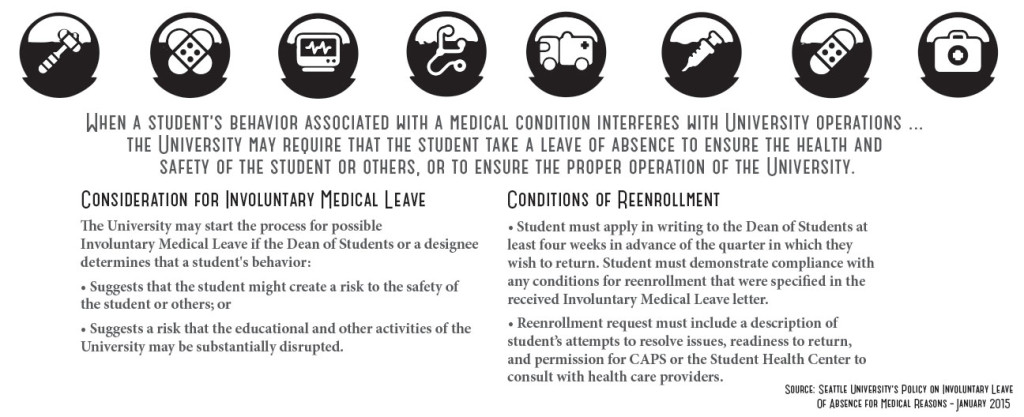A recent policy update regarding how involuntary medical leaves of absence are handled has some faculty members upset about communication between faculty and administration.
Faculty received an email a couple of weeks ago from the Office of Student Development about the policy update. The policy addresses situations in which a student is physically or emotionally distressed to the point that it is disruptive to others or to university operations. It calls for the Dean of Students, Rev. Darrell Goodwin, to make the decision of whether a student needs to take the leave of absence.
The Spectator reached out to Goodwin for comment but did not receive a response by press time.
The policy, according to some faculty, seemed to come out of nowhere, and professors wondered why faculty members weren’t involved in the decision-making process.
Sociology professor Mark Cohan decided to voice his concern about the policy in an email to his colleagues in the College of Arts & Sciences. Cohan believes the policy puts too much responsibility on one person, and said that he would not even trust himself to make the decision on his own.
“My only concern is that the decision is being left to one person, Reverend Goodwin,” Cohan said. “And of course I trust that he will make the decision in consultation with all affected parties, including faculty, but this is a big decision.”
Psychology professor Erica Lilleleht agreed. She said that although the policy is a good one to have, the types of situations it deals with are often complicated and should be reviewed by several people.
“This is a lot to put in the hands of one person—this kind of decision—and it’s a lot of responsibility,” she said. “These are the kinds of situations that benefit from multiple perspectives, from multiple portions of the university, including faculty and others as well.”
Many professors concerned with the policy expressed that it might be improved with creation of a small committee to assess students case-by-case.
“What this [policy] does is it goes straight from zero to mach 1,” said history professor Theresa Earenfight. “There’s no intermediate committee; there’s no group in this policy. That’s my fear.”
Vice President of Student Development Michele Murray offered a different perspective on the situation.
The policy, she said, has been in place for several years. In recent months, the university has been working with the Office of Civil Rights—a part of the U.S. Department of Education—to make a few minor adjustments to the policy. Essentially, while the original policy had just one avenue for appeal for students, the new policy has two. The updated version also provides a time frame of ten days for an appeal.
“[The OCR] said if we made these tweaks, it would make the policy better and more user-friendly for students,” she said. “And in the process of that, they gave us a very short window of time to let the university community know that the policy had been updated.”
Murray said that in her nine years at Seattle U, she has only heard of one case in which the policy actually needed to be used. Even so, she believes the policy allows for plenty of opportunity for faculty to intervene if a situation should arise with one of their students.
“If there was a case where the policy would go into effect, the faculty members associated with the student would have ample opportunity to feed into the system,” Murray said. “So yes, there is one person responsible for administering the policy, but that person does not work in a vacuum.”
The fact that this policy is used so rarely makes it more understandable why some faculty members had not known about it before this year. Given this information from Murray, Lilleleht held her opinion that the policy should be looked over.
“I would say that this is one of those examples where a revision brings a policy to light that people hadn’t really been attending to, in part because they weren’t involved in it,” she said. “There are a lot of things that have always been a particular way that kind of need a change, and I would say this might be one of them.”
So while the policy is not a new one, this update has given it a level of attention it has never before received. Cohan said he believes the policy, no matter its age, is worth a new discussion.
“In my 13 years at SU, I have never become aware that we had such a policy,” Cohan said. “So long as the policy, as now written, puts the decision to require a student to take involuntary leave in a single person’s hands, I do think it is worthy of a broader, more thoughtful conversation.”
Jenna may be reached at jramsey@su-spectator.com.









